Department Profile
Department Establishment:
- B.Sc. Chemistry-- 1975- 76
- M.Sc. Chemistry --- 1985- 86
- M.Phil. Chemistry --2007- 08
- Ph.D Chemistry —2019-2020
Vision:
- To provide disciplined, competent, socially committed and morally upright innovative education.
- To impart quality education to meet the challenges of fast-growing technological world.
Mission:
- To assist the local industries like Fireworks, Match works, Plastics, Paper and Printing industries through their technical knowledge.
- To build self-confidence by developing the overall personality, communication and presentation skills.
| Name of the Programme | B.Sc. Chemistry |
| Duration | 3 years |
| Intake | 44 + 4 |
| Eligibility | For admission to Under Graduate Programme in Chemistry, a candidate Passed the Higher Secondary Examination of Tamil Nadu or an examination (like the CBSE) recognized by the universities as equivalent there to, who have opted Group I in Plus Two with the following subjects in part III Physics (100), Mathematics (100), chemistry(100),Biology/Computer Science (100). |
| Name of the Programme | M.Sc Chemistry |
| Duration | 2 years |
| Intake | 25 + 4 |
| Eligibility | For admission to M.Sc chemistry, a candidate must have passed a 3 years degree course in chemistry (B.Sc Chemistry) (under the 10+2+3 pattern) recognized by the university as equivalent there to. |
| Name of the Programme | M.Phil Chemistry |
| Duration | 1 Year |
| Intake | 7 |
| Eligibility | Candidates who are Bachelor of Science (B.Sc) degree and Master of Science degree (M.Sc) holders from the same Discipline of Study seeking to get admission. |
| Name of the Programme | Ph.D Chemistry |
| Duration | 2-3 YEARS |
| Intake | 4 candidates for Assistant Professsor; 6 candidates for Associate Professor; 8 candidates for Professor No of Research guides available : 4 |
| Eligibility | Candidates who are Bachelor’s degree and Master's degree holders from the same/relevant Discipline of Study in which they wish to get admission |
PLOs -PSOs- PEOs
SYLLABUS 2023
B.Sc. Chemistry 2023
Programme Learning Outcomes (PLOs):
Programme Learning Outcomes are narrower statements that describe what students are expected to know and be able to do upon the graduation. These relate to the skills, knowledge and behaviour that students acquire in their study through the programmes.
PLO1: Disciplinary knowledge
Apply the knowledge of Arts, Science and Humanities to address fundamental and complex questions appropriate to their programmes.
PLO2: Critical thinking, Problem solving and Analytical reasoning
Make use of appropriate knowledge and skills to identify, formulate, analyze and solve problems in order to reach substantiated conclusions.
PLO3: Research related skills and scientific reasoning
Critically analyze research processes, products and practices with a view of strategic use of data in their field.
PLO4: Communication skills and Digital literacy
Demonstrate skills in oral and written communication and make use of ICT in various learning ambience.
PLO5: Team work and Leadership quality
Interact productively with people from diverse backgrounds as both leaders/mentors and team members with integrity and professionalism.
PLO6: Multicultural competence with Moral and ethical awareness
Defend the society against gender and environmental issues with moral and ethical awareness.
PLO7: Self-directed and Life-long learning
Formulate their own educational needs in a changing world in ways sufficient to maintain their competence and to allow them to contribute to the advancement of knowledge.
Programme Specific Outcomes (PSOs):
Programme Specific Outcomes denote what the students should be able to do in their discipline at the time of graduation. They are programme specific. The PSOs should be mapped to all the specified PEOs.
By the completion of the B.Sc. Chemistry programme, the learners will be able to
PSO1: Comprehend the fundamental principles, concepts and theories related to organic, inorganic, physical, pharmaceutical, computational and analytical chemistry and apply them in their higher studies and research
PSO2: Use chemical technique, generic skills and global competency that enable students to undertake further studies in the field of chemistry or related fields and work in the chemical and non-chemical industry sector
PSO3: Designed to develop and demonstrate the research problems related to safety, industrial, global, local and environmental issues
Programme Educational Objectives (PEOs):
PEOs are broad statements that describe the career and professional achievements that the programme is preparing the graduates to achieve within the first few years after graduation. PEOs should be consistent with the mission of the Institution. PEO’s can be measured by a PLO/ PSO - PEO matrix. The PEO’s should evolve through constant feedback from alumnae, students, industry, management etc. It is mandatory that each PEO should be mapped to atleast one of the PLOs.
The Graduates will be prepared to
PEO1: pursue higher studies and satisfy the needs of analyst in industries and chemical laboratories.
PEO2: possess skills of keen observation and drawing logical inferences from the practical experiments and adopt safety measures in the laboratory
PEO3: emerge as a successful women entrepreneur to establish consultancies for quality analysis and small scale industries.
M.Sc. Chemistry 2023
Programme Learning Outcomes (PLOs):
Programme Learning Outcomes are narrower statements that describe what students are expected to know and be able to do upon the graduation. These relate to the skills, knowledge and behaviour that students acquire in their study through the programmes.
PLO1: Disciplinary knowledge
Apply the knowledge of Arts, Science and Humanities to address fundamental and complex questions appropriate to their programmes.
PLO2: Critical thinking, Problem solving and Analytical reasoning
Make use of appropriate knowledge and skills to identify, formulate, analyze and solve problems in order to reach substantiated conclusions.
PLO3: Research related skills and scientific reasoning
Critically analyze research processes, products and practices with a view of strategic use of data in their field.
PLO4: Communication skills and Digital literacy
Demonstrate skills in oral and written communication and make use of ICT in various learning ambience.
PLO5: Team work and Leadership quality
Interact productively with people from diverse backgrounds as both leaders/mentors and team members with integrity and professionalism.
PLO6: Multicultural competence with Moral and ethical awareness
Defend the society against gender and environmental issues with moral and ethical awareness.
PLO7: Self-directed and Life-long learning
Formulate their own educational needs in a changing world in ways sufficient to maintain their competence and to allow them to contribute to the advancement of knowledge.
Programme Specific Outcomes (PSOs):
Programme Specific Outcomes denote what the students should be able to do in their discipline at the time of graduation. They are programme specific. The PSOs should be mapped to all the specified PEOs.
By the completion of the PG Chemistry programme, the learners will be able to
PSO1: Comprehend the fundamental principles, concepts and theories related to organic, inorganic, physical, pharmaceutical, computational and analytical chemistry and apply them in their higher studies and research
PSO2: Use chemical technique, generic skills and global competency that enable students to undertake further studies in the field of chemistry or related fields and work in the chemical and non-chemical industry sector
PSO3: Designed to develop and demonstrate the research problems related to safety, industrial, global, local and environmental issues
Programme Educational Objectives (PEOs):
The Graduates will be prepared to
PEO1: apply their competency and analytical skills gained for higher studies and able to be a professional analyst in research and development laboratories of pharmaceutical, pyro technique, paper and pulp and other chemical industries
PEO2: employ their critical thinking, scientific inquiry in the performance, design, interpretation and documentation of innovative research work with ethics, realizing the social, economic, environmental and technological implications of chemistry.
PEO3:establish analytical laboratories and small scale industries, learning support centers for competitive examinations.
Faculty Details
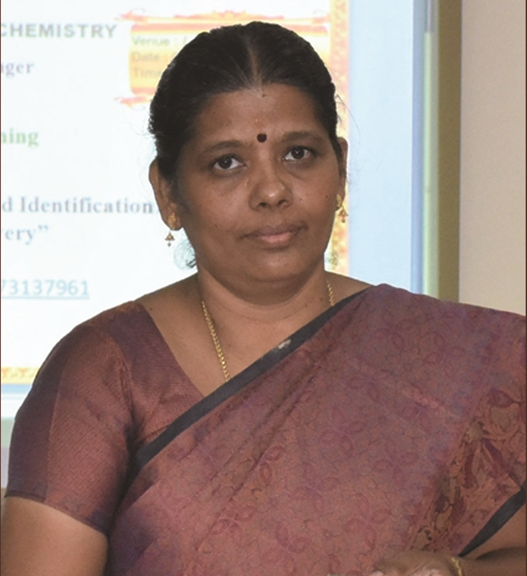
Dr.M.Murugalakshmi
M.Sc , M.Phil, Ph.D
Associate Professor & Head
E-Mail murugalakshmi-che@sfrcollege.edu.in Area of Specialization Organic Chemistry VIDWAN Profile
Dr.C.Thamarai Chelvi
M.Sc , M.Phil, Ph.D
Associate Professor
E-Mail thamaraichelvi-che@sfrcollege.edu.in Area of Specialization Inorganic Chemistry VIDWAN Profile
Dr.N. Uma Sangari
M.Sc , M.Phil, Ph.D
Associate Professor
E-Mail umasangari-che@sfrcollege.edu.in Area of Specialization Physical Chemistry VIDWAN Profile
Dr. S. Shailaja
M.Sc , M.Phil, Ph.D NET in Forensic Science, SET in Chemistry, GATE in Chemistry
Assistant Professor
E-Mail shailaja-che@sfrcollege.edu.in Area of Specialization Physical Chemistry VIDWAN Profile
Dr. Kavitha rani P.R
M.Sc , M.Phil, Ph.D
Assistant Professor
E-Mail kavitharani-che@sfrcollege.edu.in Area of Specialization Organic Chemistry VIDWAN Profile
Dr.D.Rajamani
M.Sc , M.Phil, Ph.D
Assistant Professor
E-Mail rajamani-che@sfrcollege.edu.in Area of Specialization Physical Chemistry VIDWAN Profile
Dr. J. Vinnarasi
M.Sc , M.Phil, Ph.D
Assistant Professor
E-Mail vinnarasi-che@sfrcollege.edu.in Area of Specialization Inorganic Chemistry VIDWAN Profile
Dr. J. Porkodi
M.Sc , M.Phil, Ph.D
Assistant Professor
E-Mail porkodi-che@sfrcollege.edu.in Area of Specialization Organic Chemistry VIDWAN Profile
Dr.R.Radha
MSc.,MPhil.,PhD
Assistant Professor
E-Mail radha-che@sfrcollege.edu.in Area of Specialization Natural Products Chemistry VIDWAN Profile
Dr.C. Thangapriya MSc.,
MPhil., PhD.
Assistant Professor
E-Mail thangapriya-che@sfrcollege.edu.in Area of Specialization Green Chemistry, Inorganic Chemistry VIDWAN ProfileRemarkable Activities
Guest lecture on “Waste Management” - Mr. N. Tamil Selvan., B.Sc., B.L., Senior Legal Advisor and Consultant, Madurai Power Corporation, Kanyakumari - 01.09.2025
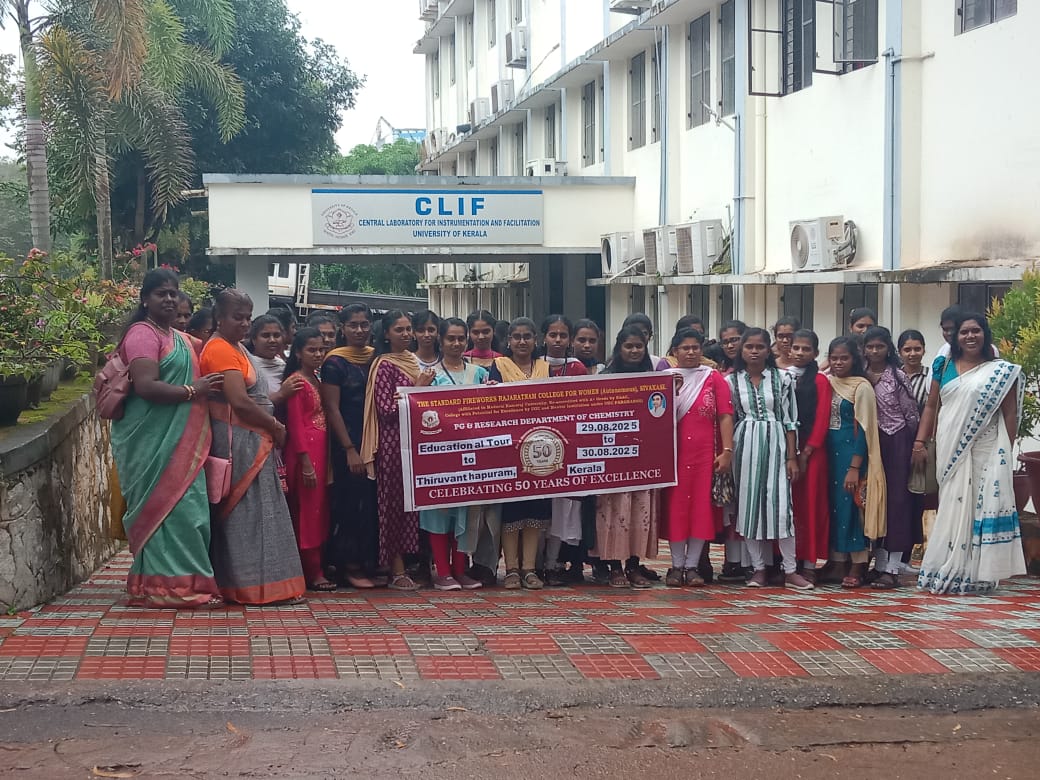
Education Trip To Thiruvanthapuram - III B.Sc and II PG Chemistry students- 29.08.2025 and 30.08.2025
Guest lecture on Role of Chemistry in Pharma on 03.07.2025. Dr. S. Thangadurai , Associate Prof. & Head, Department of Chemistry, Government Arts and Science college, Sivakasi addressed the students.
Alumnae Guest Lecture - Career Opportunities in Chemistry on 16.06.2025. Ms. M. Meena, M.Sc., (2017-2022 Batch), Customer Service Executive, Tamilnadu Mercantile Bank, Pillayarpuram Branch, Nagercoil addressed the students.
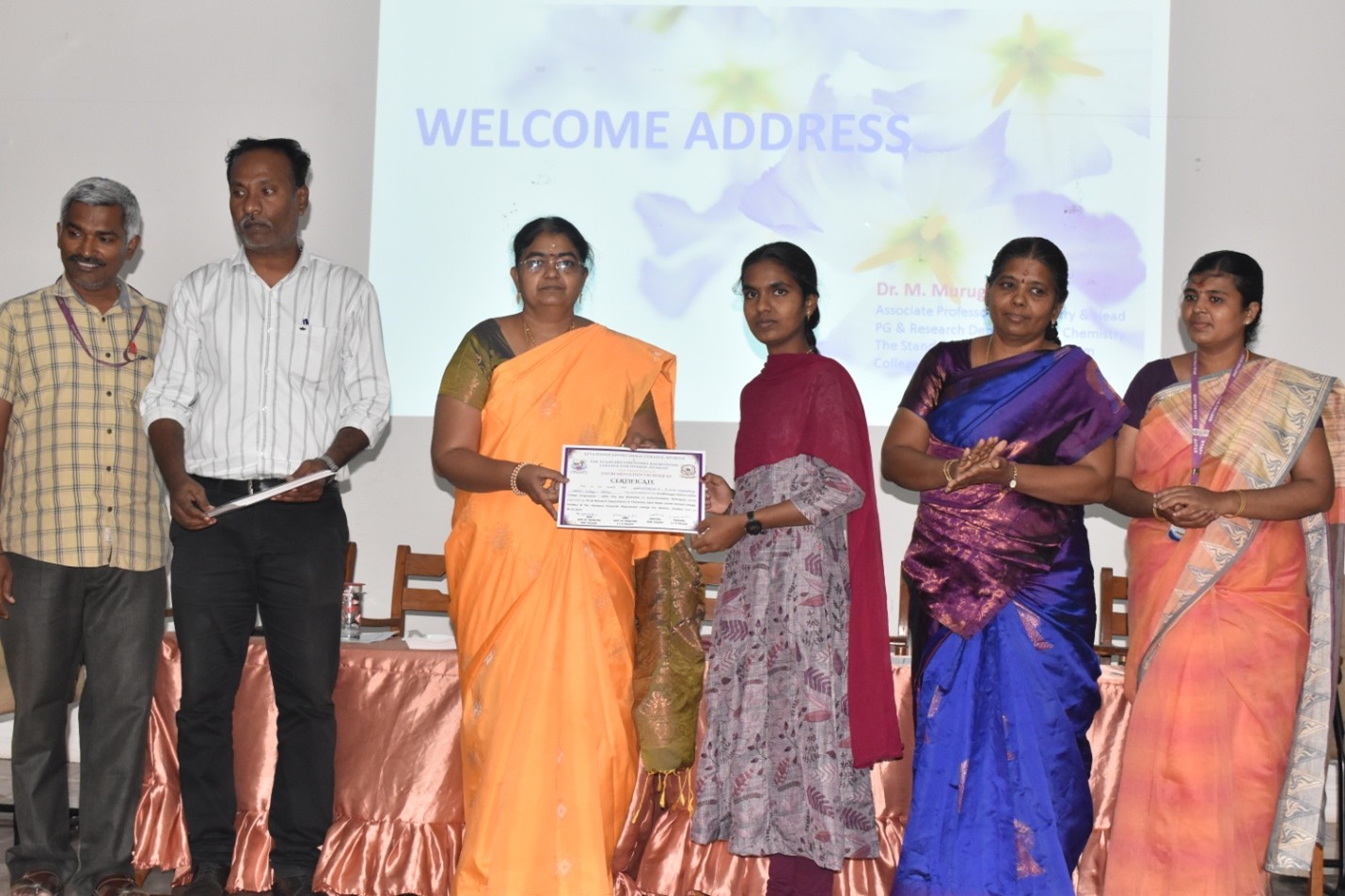
Virudhunagar District Cluster College Programme on “ Workshop on Instrumentation Techniques”
Date : 06.03.2025
Organized in collaboration with ANJA College, Sivakasi
35 Students from 5 different college benefited
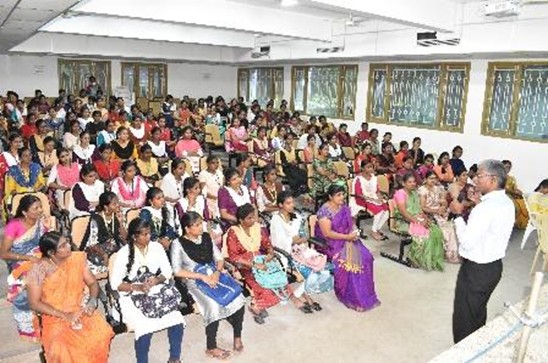
MoU activity with Kamaraj College, Tuticorin
State Level Guest Lecture – 17.12.2024
Topic: Organic Dyes in Dye Sensitized Solar Cells
Resource Person: Dr. Jayaraj Nithyanandhan
Senior Scientist & Professor (AcSIR), Physical and Materials Chemistry Division
CSIR- National Chemical Laboratory,Pune
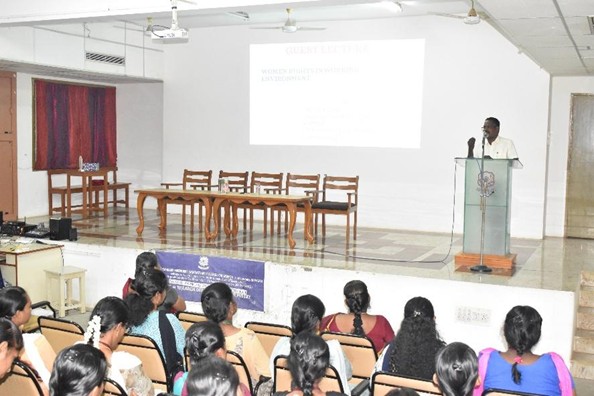
Chemistry Association Meeting – 05.10.2024
Topic: Women Rights in Working Environment
Resource Person: Mr. J. Kalidas,
Assistant Commissioner of Labor,
(Social Security Scheme) Virudhunagar
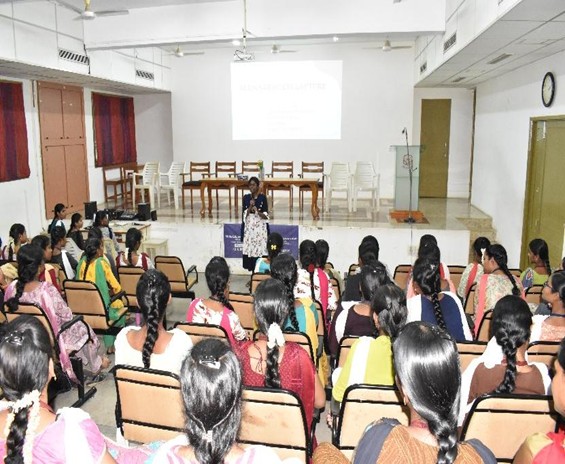
Alumnae Guest Lecture – 04.10.2024
Topic: Women in Leadership Positions in Finance.
Ms. M. Ponmani Achaya, Deputy Manager
ICICI Bank, Korattur, Chennai
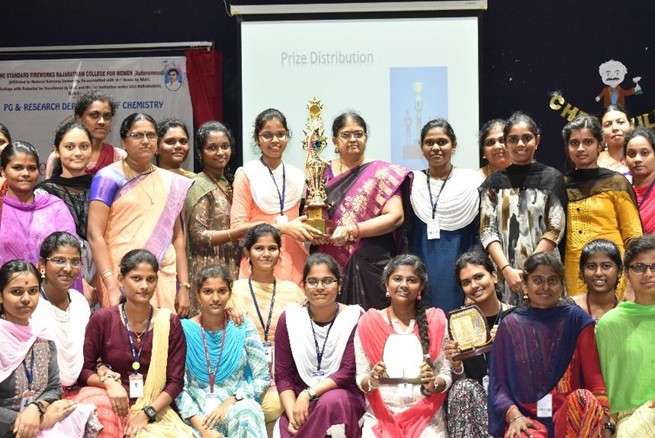
Intercollegiate Competition – Chem Chillz 2024 – 20.08.2024
Participants : 289 students from 19 colleges

Extension Activity – 09.08.2024
Self-Employment Training programme
Venue : KSS Secondary School, Sithurajapuram
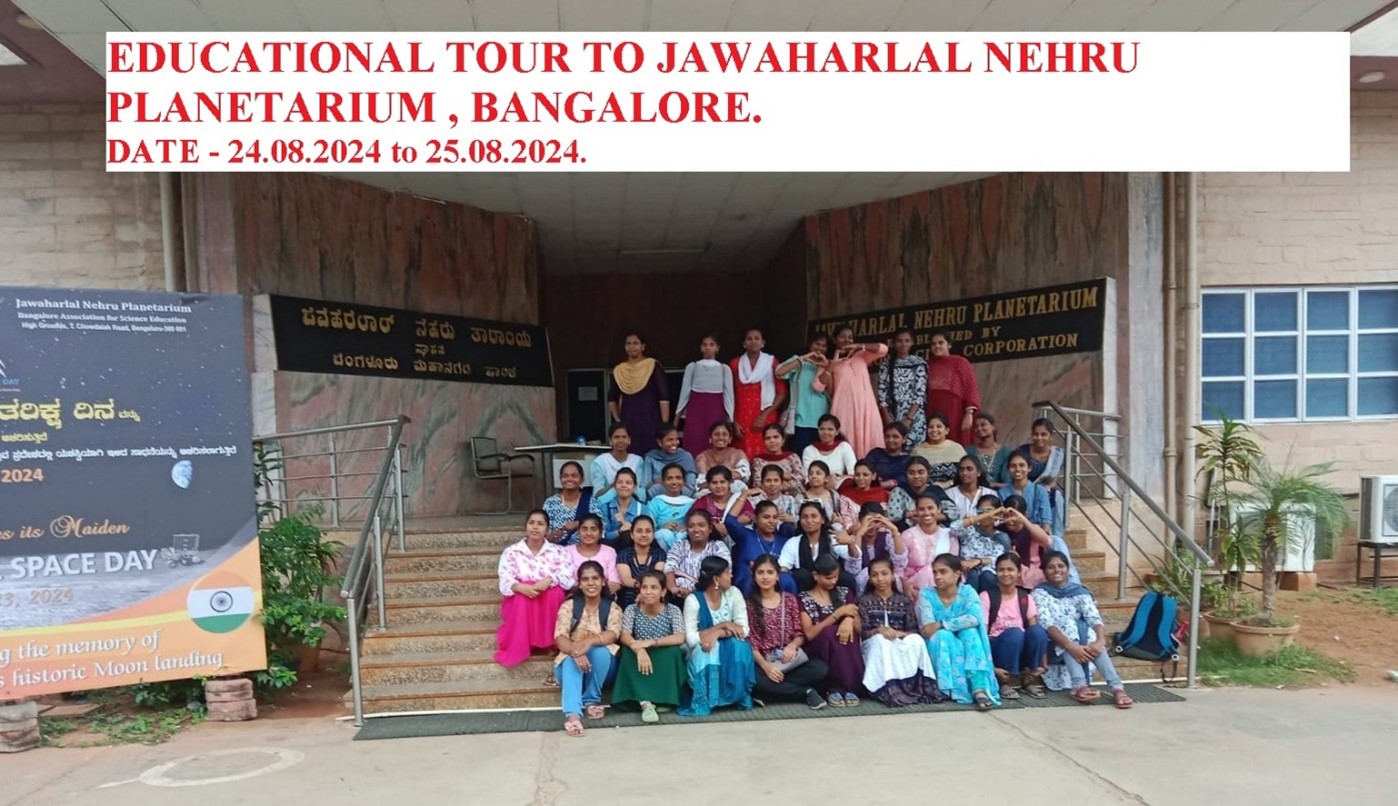
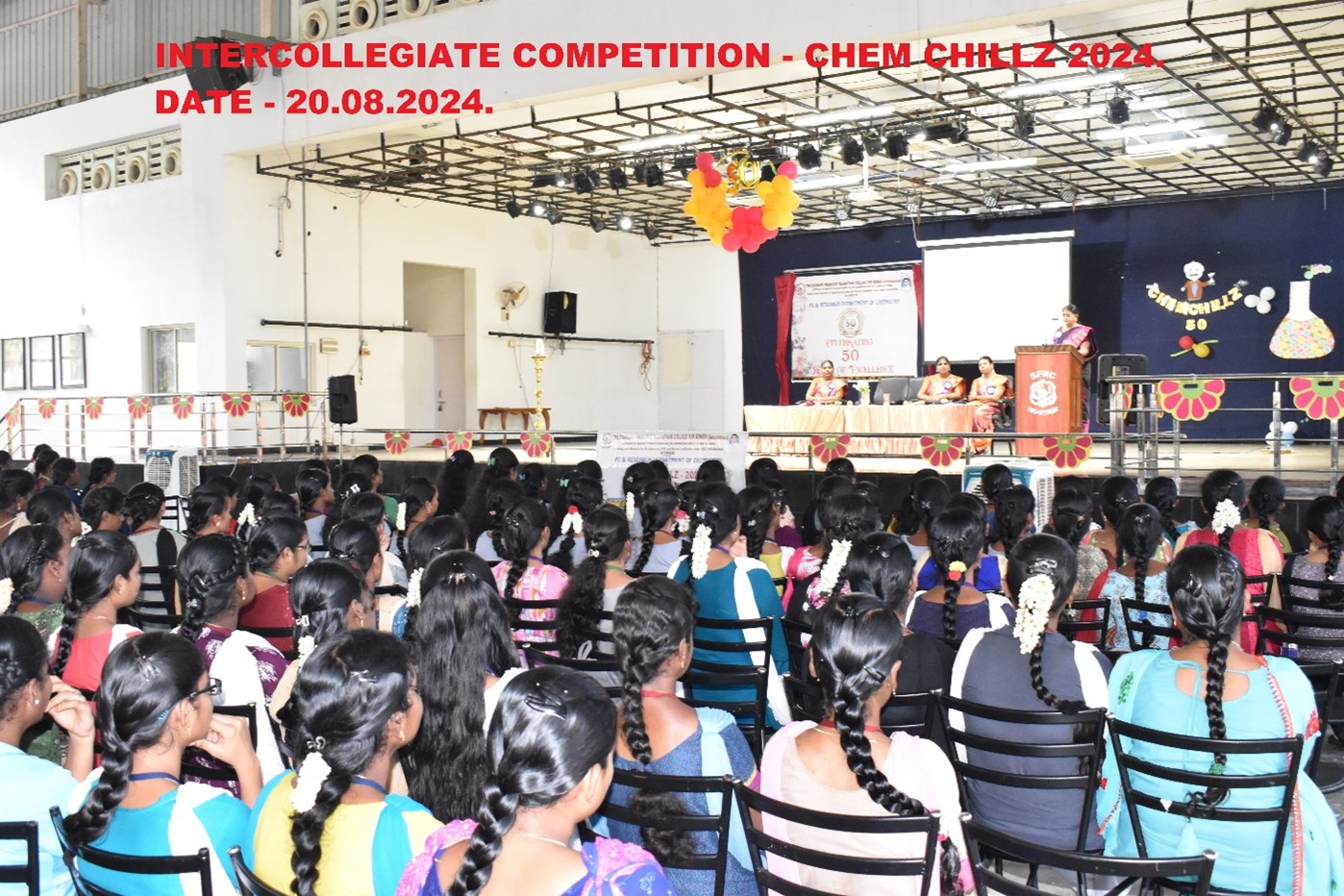
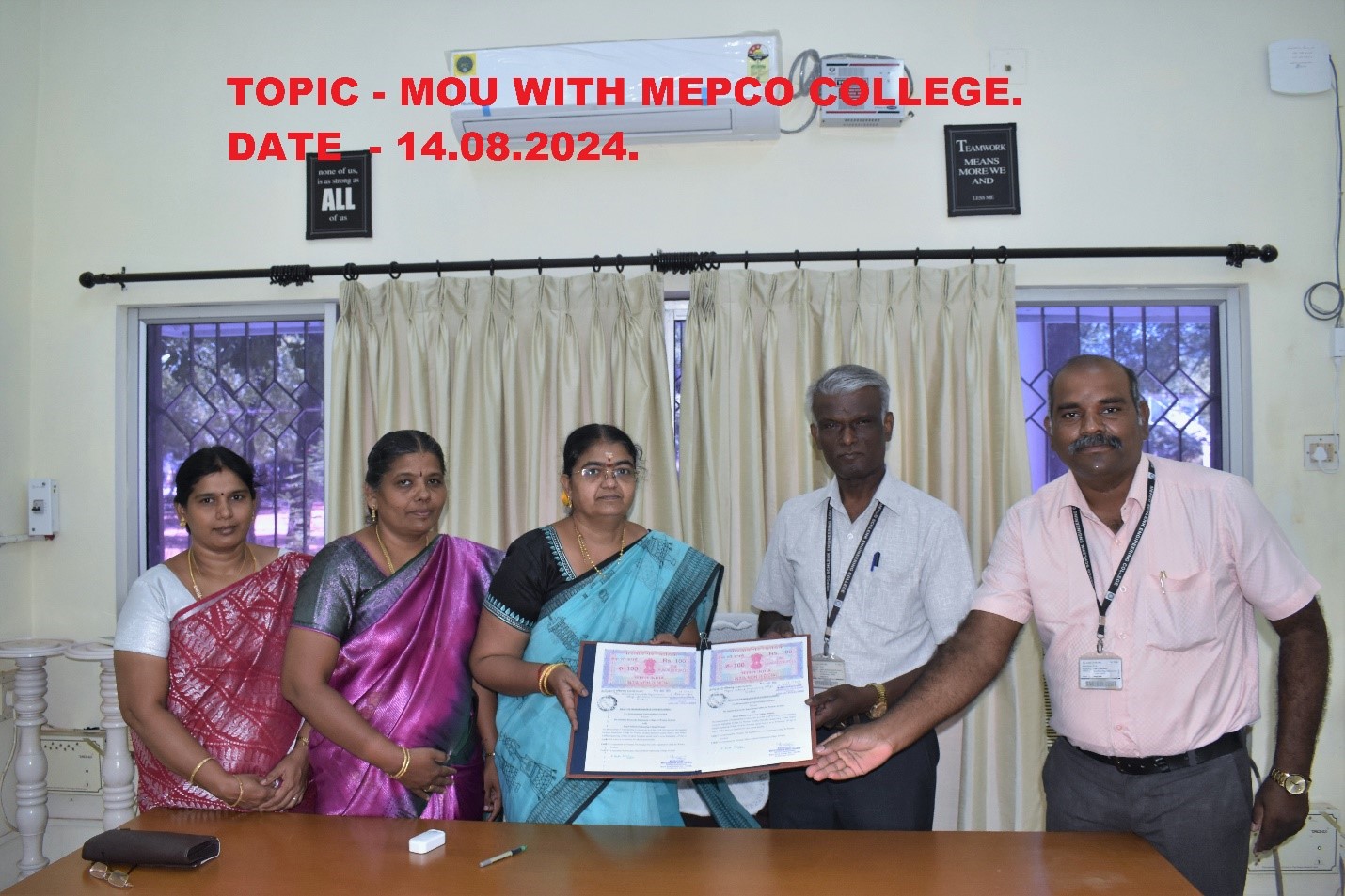
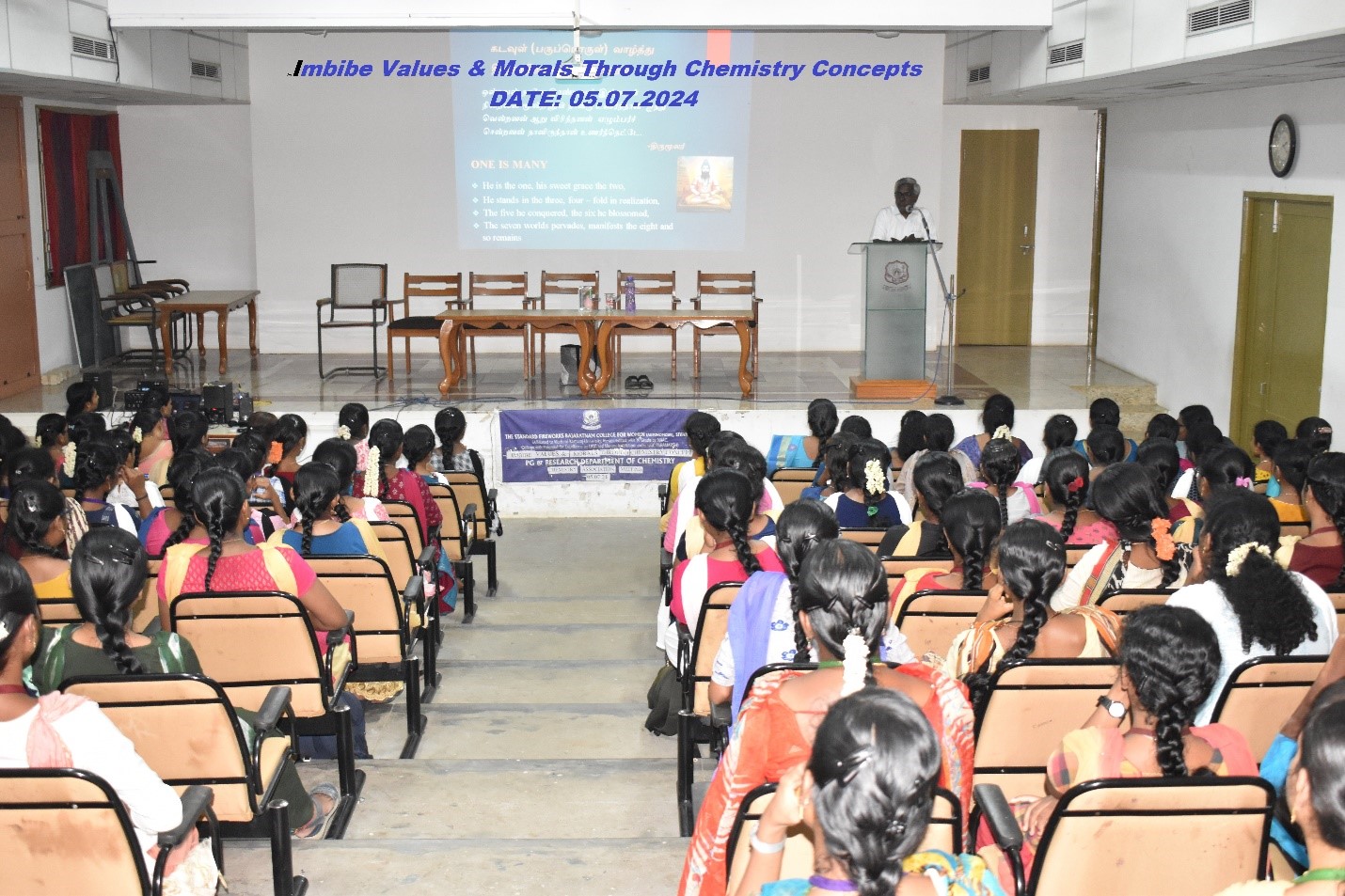

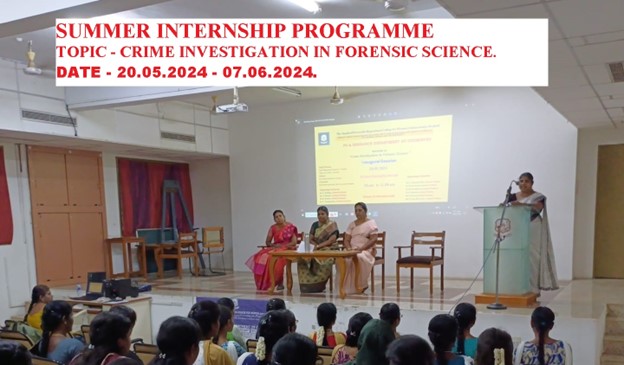
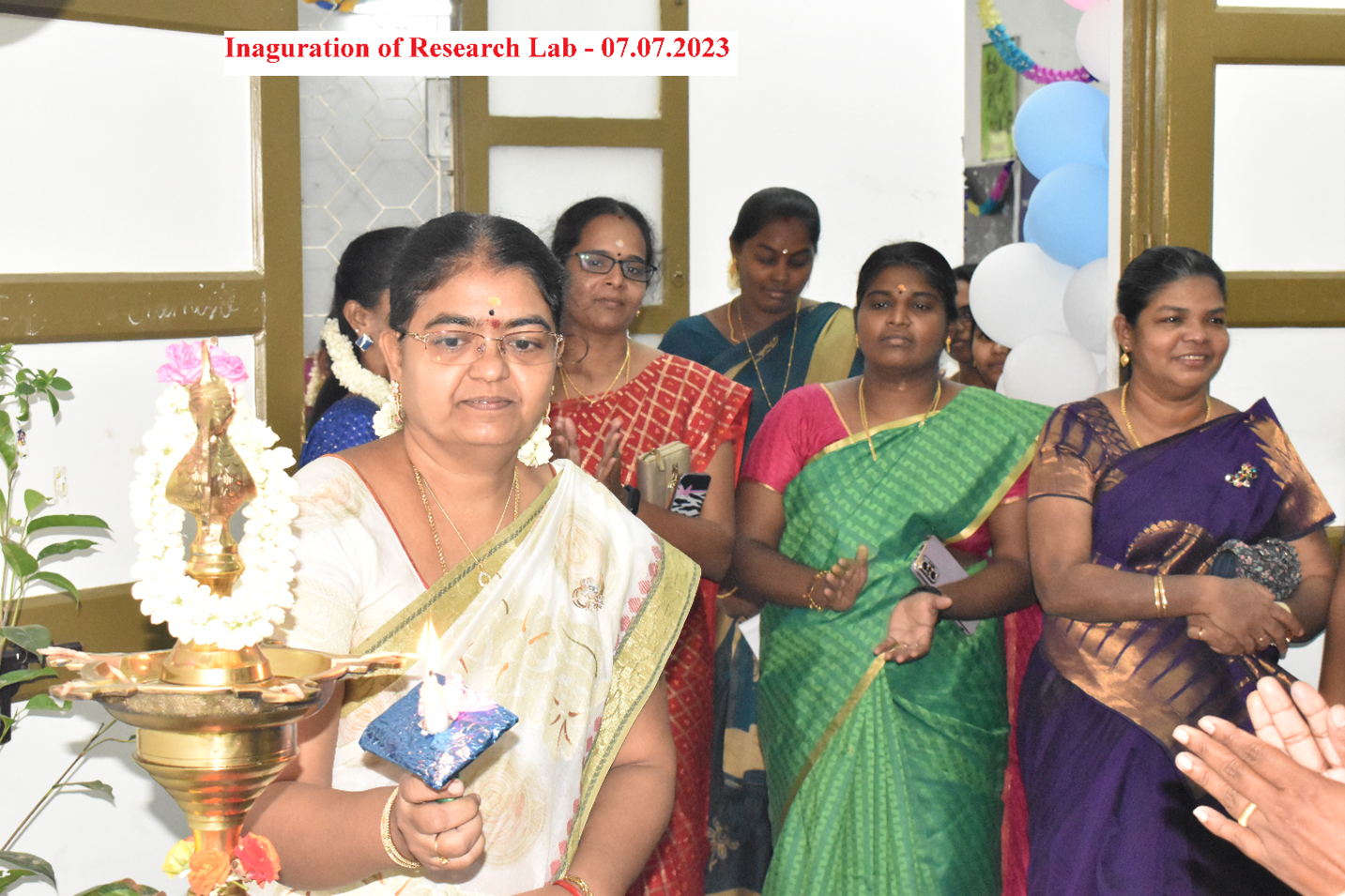
Student Achievements
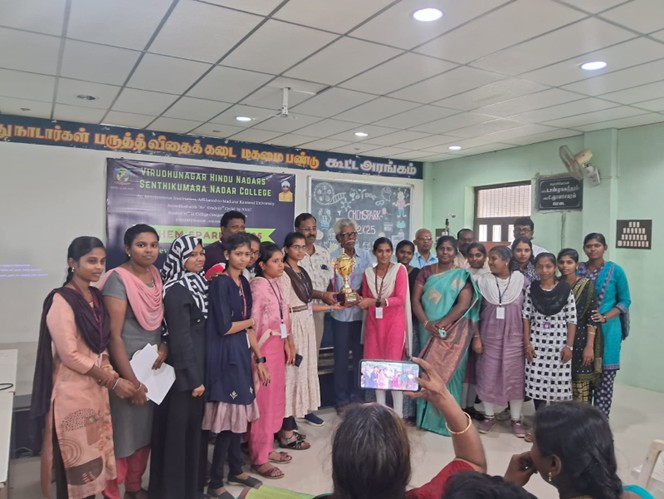
Overall Champions in State Level Inter – Collegiate Competition– CHEM SPARK -n2k25
Date – 25.01.2025
Venue – Virudhunagar Hindu Nadars’ Senthikumara Nadar College, Virudhunagar
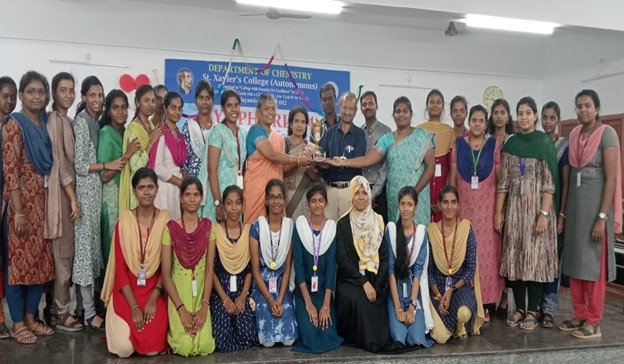
Overall Champions in State Level Inter – Collegiate Competition Symphoria 24
Date – 11.12.2024
Venue – St. Xavier College, Palayamkottai
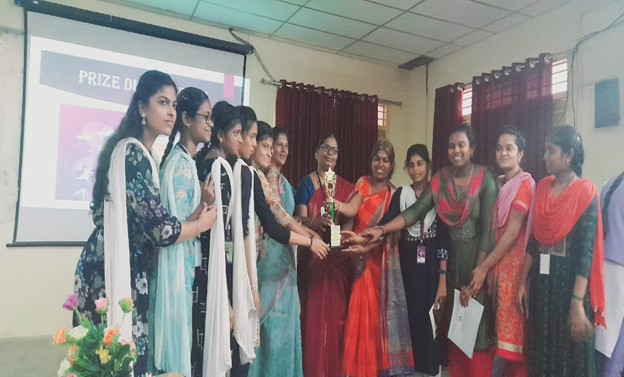
Overall Champions in State Level Inter – Collegiate Competition - Chem Fest - 2024
Date – 03.10.2024
Venue – Sri Parashakthi College, Courtallam

First Prize in Rally – Youth Welfare Porgramme - 17.08.2024
Topic – My India and My Pride
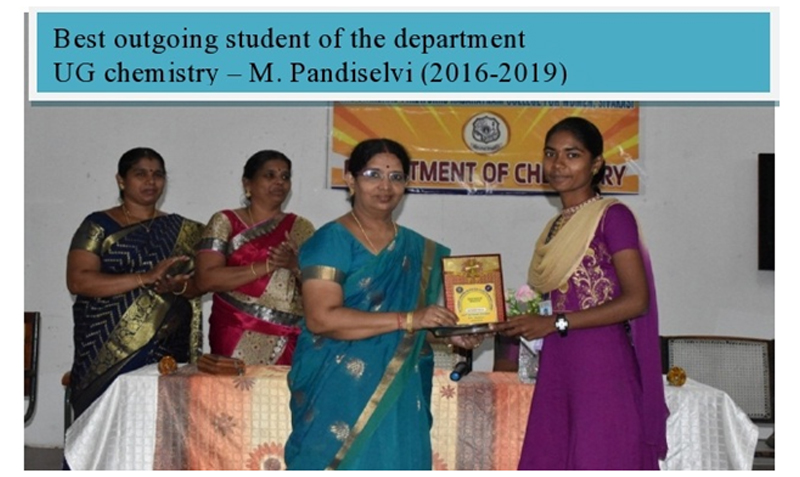
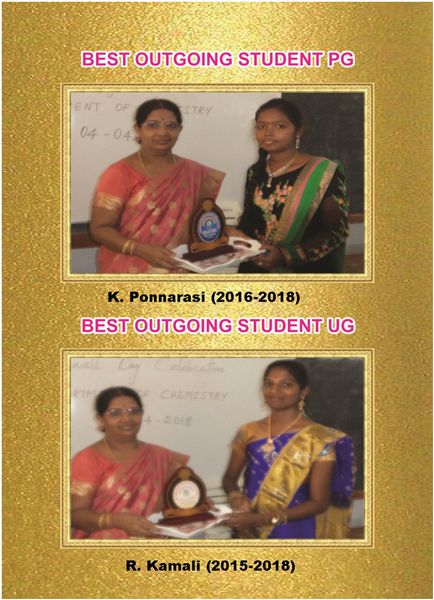
.
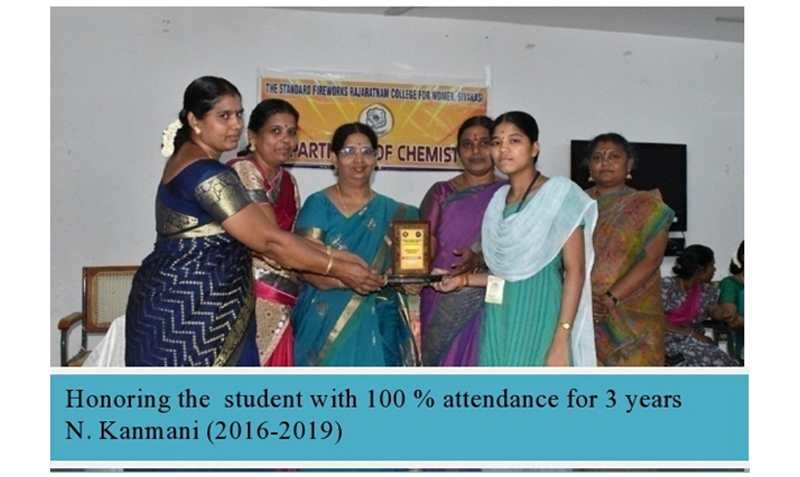
.
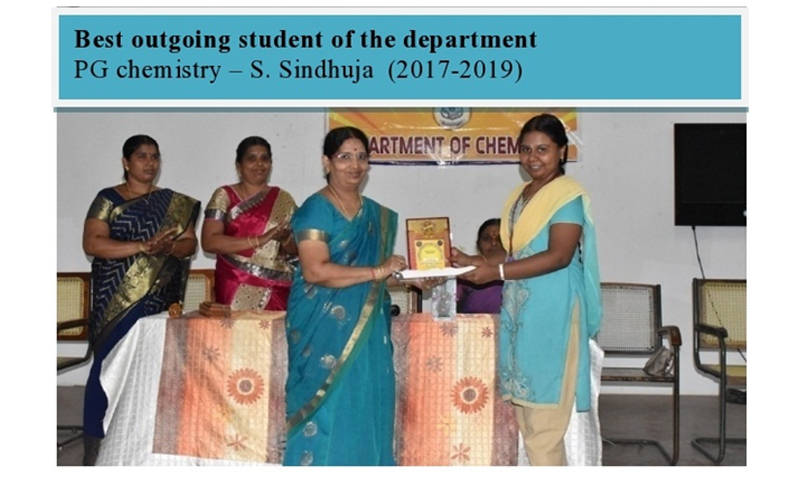
Contact Us
Thiruthangal Road , Sivakasi - 626123 , Tamil Nadu , India
Telephone Number
+91 4562-220389 FAX Number
+91 4562-226695 Email ID
sfrc@sfrcollege.edu.in
